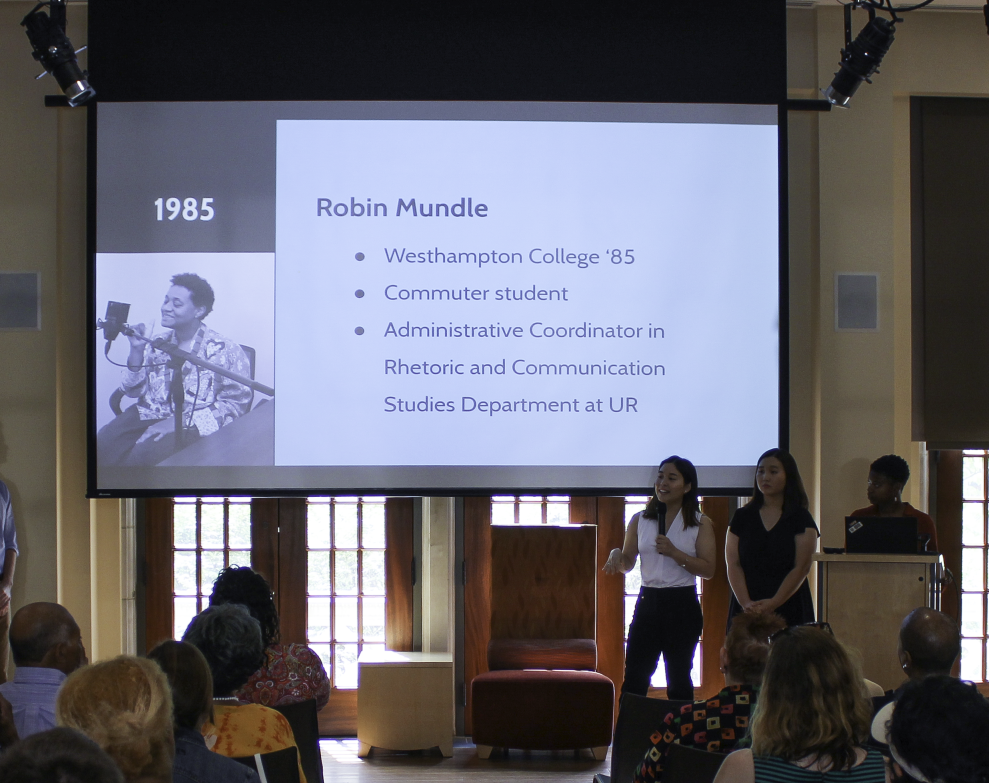by Jenifer Yi
Jenifer Yi is a sophomore from Santa Clarita, California majoring in Biochemistry with a concentration in Neuroscience and a minor in Healthcare Studies. She has been involved with the Race & Racism Project since 2018 and hopes to diversify the conversation and inclusion of all students of color at the University of Richmond. On campus, she is a part of the leadership board for the Asian American Student Union. Through her contributions to the project, she wants to push for campus-wide racial awareness. In the future, she hopes to pursue a career in medicine while continuing to advocate and raise awareness for healthcare access for minorities.
 Setting up recording equipment, not quite sure how high to raise the microphone; nervously re-reading your list of questions; waiting to talk to a person you have never seen in real life – this is what it is like to conduct an oral history. You do not know where the conversation will wander, even if you prepare a list of questions or have a direction in mind for the conversation. Looking back on my reflections on how I thought interviews would pan out, I have learned a lot since then. Previously, I had nothing but my imagination, the Collegian, and ancient yearbook pages to base my expectations on.
Setting up recording equipment, not quite sure how high to raise the microphone; nervously re-reading your list of questions; waiting to talk to a person you have never seen in real life – this is what it is like to conduct an oral history. You do not know where the conversation will wander, even if you prepare a list of questions or have a direction in mind for the conversation. Looking back on my reflections on how I thought interviews would pan out, I have learned a lot since then. Previously, I had nothing but my imagination, the Collegian, and ancient yearbook pages to base my expectations on.
I expected stories revolving around microaggresions, racism, and discrimination would be commonplace. I was wrong. I did not always hear heated rants about experiences of racism or hatred for the institution. The memories that people shared are primarily about the beauty of the University of Richmond, funny memories involving hallmates, and everyday life. The interviewees that I had the opportunity to speak and listen to classified “racist experiences” as rare, isolated incidents.
Although some alumni did not let these events corrupt their overall university experience, some felt uncomfortable and hindered by the actions of other people at certain points in time. Racism may not be a constant barrage for minority students, but it is important to recognize and shine awareness on these isolated incidents – especially for alumni that felt burdened by racist experiences. Because not all graduates fit this mold, I became cautious about not imposing my personal hardships at the university onto interviewees, especially going into my final podcast piece. With the ability to cut and rearrange parts from the interview, I had to ensure that the alumni told their story from their point of view while also arranging my own narrative. Their emotions, memories, mindset, and way of processing their university life are uniquely theirs. My narrative had to be formed around the stories of the Race & Racism interviewees – not the other way around.
Not all minority students process racism the same way. Bouts with discrimination and microaggressions can have lasting imprints on its victims – whether that be while attending the University of Richmond, twenty years after a minority student has graduated from the University of Richmond, or not at all. Just because not all minority students have the ability to pinpoint and feel hindered by the ignorant actions of other people does not mean we can bypass racial issues. In fact, current students such as myself and those a part of the Race & Racism Project pursue widespread acceptance, exposure, and education of racial issues for those that feel isolated on campus because of the color of their skin.
I, being a Korean American on campus, still do not know why I feel unaccepted on campus. At times, I feel that it can be my personality. I feel guilty about blaming my woes on race – it would be much easier if I could blame my discomfort on myself. But talking with alumni, I believe that although the University of Richmond has made efforts to move away from a homogenous student body, it is important to actively be aware of race and racism on campus. We should not rely on just the institution to make changes for us – because what if they do not? Students, alumni, and their personal experiences are powerful. We should take in the stories of ourselves and those that came before us to make the University of Richmond a campus that is constantly aware and striving towards change.
